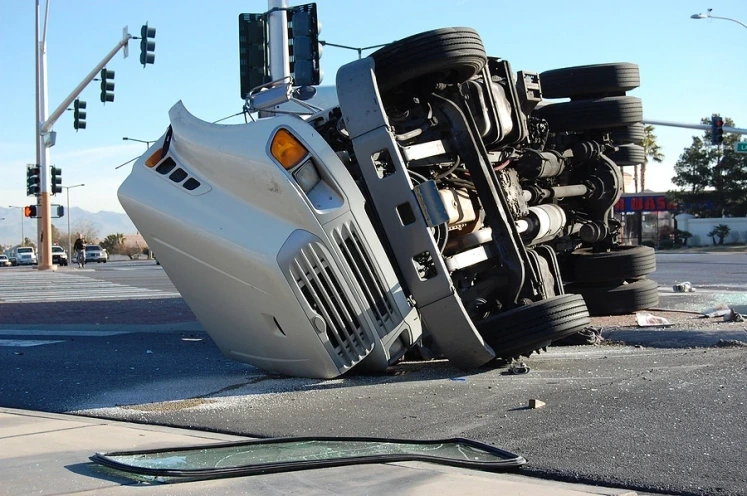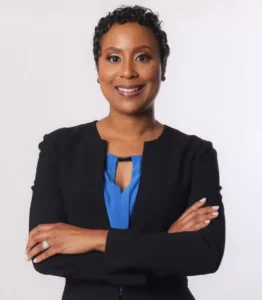Table of Contents
After a car or truck accident in Mississippi, one of the first calls you’re likely to receive is from an insurance adjuster. Their job may seem simple—to assess the damage, gather information, and determine compensation—but their role is far more complex than most people realize. Insurance adjusters work for the insurance company, not for you. Their main goal is to protect the company’s financial interests, which often means minimizing the amount paid on claims. Understanding their role, motives, and tactics can help you protect your rights and ensure fair treatment.
Why Insurance Adjusters Get Involved Early
When an accident is reported, the insurance company acts quickly to assign an adjuster. This person investigates the accident, reviews statements, and estimates costs associated with property damage and injuries. In car and truck accidents, adjusters may visit the scene, inspect vehicles, talk to witnesses, and review police reports.
At first, their involvement may seem helpful. They might sound polite and cooperative, asking how you are feeling or requesting basic information. However, it’s important to remember that every conversation is part of their evaluation process. They’re trained to look for statements that could later be used to reduce or deny your claim.
How Adjusters Evaluate Car and Truck Accident Claims
Adjusters rely on several factors when determining the value of a claim. These include:
- The extent of property damage to each vehicle
- The severity and nature of injuries
- Statements from drivers, passengers, and witnesses
- Medical records and treatment costs
- Police reports and any citations issued
- Comparative fault laws in Mississippi
In Mississippi, accident claims are governed by pure comparative negligence. This means that each party’s compensation is reduced by their percentage of fault. For example, if you’re found 30% at fault in a truck accident, your total recovery is reduced by that same percentage. Insurance adjusters often use this rule to shift blame and reduce payouts, even when liability is clear.
The Difference Between Car and Truck Accident Claims
While car accidents and truck accidents both involve insurance adjusters, the claims process for commercial truck accidents is often more complicated. Trucking companies usually carry large insurance policies, and several parties may share liability, including the truck driver, the trucking company, or the company that owns the cargo.
In these cases, the adjuster might represent a corporate insurer with a legal team behind them. Their goal will be to protect the company from large settlements, especially in accidents resulting in severe injuries or fatalities. Adjusters in truck accident cases are often more aggressive and strategic in their questioning, knowing that significant sums are at stake.
Common Tactics Used by Insurance Adjusters
Insurance adjusters are professionals trained to gather information and use it to the insurer’s advantage. Some of the most common tactics include:
Requesting Recorded Statements Early
Adjusters often ask victims to provide recorded statements soon after the crash. They may say it’s standard procedure, but this is a risky step without legal guidance. Anything said can be taken out of context and used to challenge your credibility later.
Offering Quick, Low Settlements
Many adjusters make early settlement offers that seem tempting, especially when medical bills and lost wages start piling up. However, these initial offers are usually far below the true value of the claim. Accepting one prevents you from seeking additional compensation later, even if your injuries worsen.
Downplaying Injuries
Adjusters may suggest your injuries are minor or unrelated to the accident. They might question medical records or argue that pre-existing conditions are to blame. This approach helps justify a lower settlement.
Using Delays to Pressure Claimants
Some adjusters delay responses or paperwork in hopes that frustration will lead you to accept less money. They understand that most accident victims are under financial stress and may feel pressured to close the claim quickly.
Assigning Partial Fault
In Mississippi’s comparative negligence system, assigning even a small percentage of blame to the injured person reduces the payout. Adjusters may look for inconsistencies or small mistakes to argue that you contributed to the crash.
Protecting Your Rights When Dealing With Adjusters
Dealing with an adjuster requires caution. It’s important to understand that you are not obligated to give a recorded statement or accept an initial offer. Here are some steps you can take to protect your claim:
- Avoid discussing fault. Stick to the facts and avoid speculating about who caused the accident.
- Don’t agree to a recorded statement without consulting your attorney.
- Keep detailed records of medical treatments, expenses, and missed work.
- Be cautious about social media. Adjusters sometimes review public posts to find statements or photos that undermine injury claims.
- Consult a personal injury lawyer before signing any documents or accepting a settlement.
An attorney can handle communications with the insurance company and ensure that your words and evidence are presented strategically.
How a Lawyer Can Help During Negotiations
Insurance adjusters are experienced negotiators, but so are skilled personal injury lawyers. Having legal representation changes the dynamic of your case. A lawyer understands the insurance company’s tactics and can counter them with evidence and legal knowledge.
Your attorney can:
- Collect and preserve critical evidence such as medical reports, witness statements, and expert testimony.
- Evaluate the full value of your damages, including pain and suffering, future medical care, and lost earning capacity.
- Negotiate from a position of strength, backed by a clear understanding of Mississippi’s personal injury laws.
- File a lawsuit if the insurance company refuses to make a fair offer.
By working with an attorney, you level the playing field. Adjusters recognize when a claimant has legal support, which often leads to more reasonable settlement discussions.
The Importance of Patience in Settlement Negotiations
Insurance claims take time, especially when serious injuries are involved. It can be frustrating to wait for the process to unfold, but patience often results in better outcomes. Settling too quickly may leave you with unpaid medical expenses or long-term costs not yet accounted for. A lawyer can help you determine when it’s the right time to settle and ensure all current and future damages are included.
Truck Accident Claims and Federal Regulations
Truck accident cases often involve additional layers of complexity due to federal regulations. The trucking industry is governed by rules set by the Federal Motor Carrier Safety Administration (FMCSA), covering driver rest periods, vehicle maintenance, and cargo handling. If these rules are violated, liability can shift from the driver to the company. Insurance adjusters working on truck claims understand these regulations and may try to downplay their significance. A knowledgeable attorney can identify violations and use them to strengthen your case.
Why Legal Representation Matters Most in Mississippi
Mississippi’s insurance and liability laws can be challenging to navigate without professional help. Even a small mistake—such as missing a filing deadline or providing too much information to an adjuster—can weaken your claim. Local attorneys understand the courts, insurers, and common strategies used in accident claims. They can manage every step of the process, allowing you to focus on recovery instead of paperwork and negotiations.
Conclusion
Insurance adjusters play a crucial role in the aftermath of car and truck accidents in Mississippi. While they may appear helpful, their primary responsibility is to protect the insurer’s financial interests. Knowing how they operate, recognizing their tactics, and approaching communications carefully can prevent costly mistakes.
Working with an experienced personal injury lawyer gives you the advantage you need to negotiate effectively and pursue fair compensation. When you understand the adjuster’s role and your legal rights, you’re in a stronger position to protect yourself and achieve a just outcome after a serious accident.

